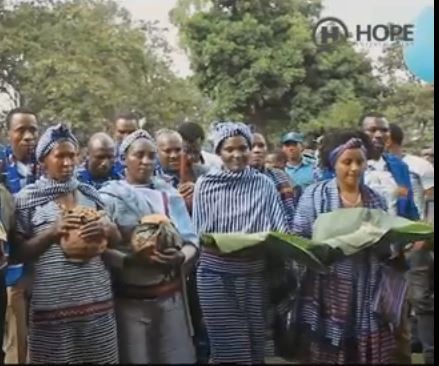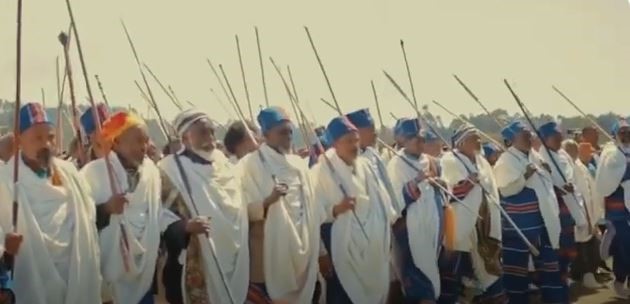Cultural Traditions and Norms
In addition to Coffee, the people of Gedeo cultivate Enset. They have a deep understanding of how to care for local forests, and their agricultural and subsistence production system is based on agroforestry, which means maintaining a balanced relationship between agricultural production and forest conservation. Trees and shrubs are fundamental in their production system and are at the core of their culture.
This bears an interesting similarity to many Latin American communities, such as those in central and southern Mexico and, of course, our brothers in Brazil. This similarity is undoubtedly due to their tropical climate and mountainous, rugged geography on both sides of the world.
On the cultivated mountainsides, there are special forests that people use for conducting religious rituals. At the mountaintops, you can find groups of large stone monuments that are of great importance to the Gedeo and are cared for by the older members of the community.
It's essential to note that the Gedeo people do not practice either Christianity or Islam. Instead, they follow their own religion and have a calendar and time measurement system that are entirely independent but quite similar to those of their relatives, the Oromo people. Their system is based on cycles of 70 years, marked by the agricultural seasons of planting, harvesting, and rainfall
Ballee System
- The Gedeo's indigenous Ballee system encompasses customary laws, rules, regulations, norms, and social codes that govern interactions with nature and among community members. This system has been instrumental in sustainable environmental management and in preserving social cohesion.
Gada System
- Similar to the Oromo people's Gada system, the Gedeo have a tradition of ranks and age classes that structure societal roles and responsibilities. This system organizes individuals into seven grades spanning a 70-year cycle, influencing leadership and community duties.
As an ancient society dedicated to agriculture and deeply connected to nature, their way of understanding the universe makes sense. Their New Year, called Dararo and celebrated in September, is a period of happiness and a desire for prosperity. It signifies the transition from times of hardship to times of prosperity, marking the end of the harvest season.
During this celebration, they invoke their god Magueno, the supreme god and creator of the entire universe. For the Gedeo people, their god is the source of all happiness and prosperity in the world. They believe that all human beings are equal because they are all created by Magueno, the one god and creator in the universe.


In addition to its edible forests and beautiful traditions, another wonder that can be appreciated in this enchanting land is the more than 6,000 mysterious stone monoliths scattered throughout its territory. Recent studies suggest that they were built around the first century AD.
The Gedeo region, in southern Ethiopia, is replete with green landscapes, rivers, lakes, forests, and an endless array of cultural wonders, supported by centuries of knowledge and traditions passed down from generation to generation. It is a lesser-known land, filled with mysteries, and undoubtedly a place that will provide you with unique life experiences.